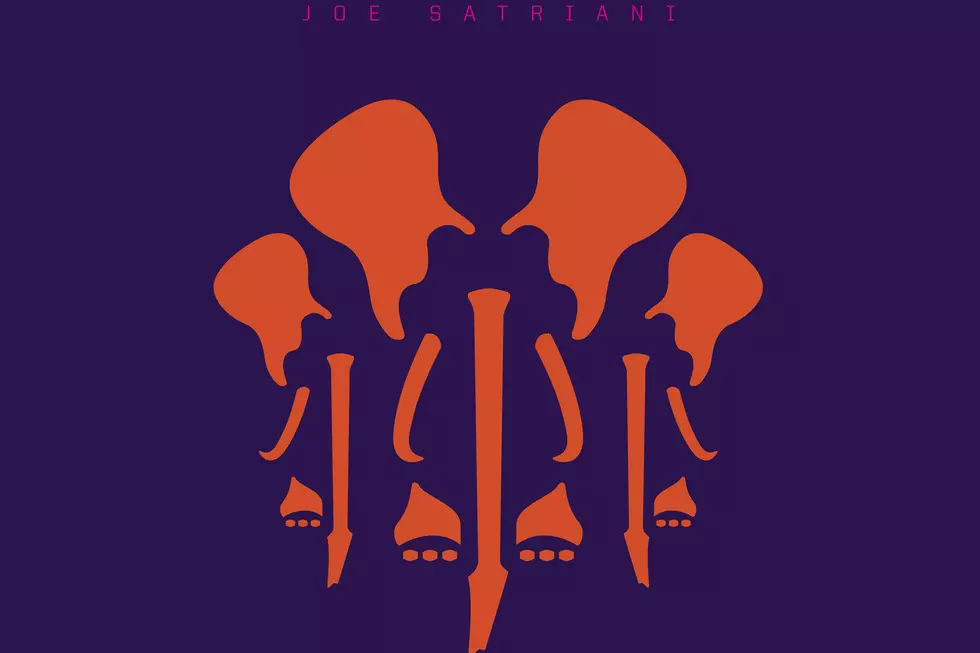
Joe Satriani, ‘The Elephants of Mars': Album Review
The Elephants on Mars sounds like something Joe Satriani might have seen 35 years ago when he was out Surfing With the Alien. And rest assured the rock-guitar virtuoso's 19th album is another sonic travelogue, albeit one that's a little more Earthbound and informed by the circumstances of the past couple of years.
Like so many other recordings surfacing these days, The Elephants on Mars was a pandemic project for Satriani and his mates, working remotely from California and Australia and taking advantage of enforced time off to spend more time pondering and creating. The 14 tracks here - all instrumentals except for "Through a Mother's Day Darkly," which features spoken-word passages by cowriter Ned Evett - determinedly push the sonic envelope of both structure and tone, confirming that the time was not at all wasted.
Satriani starts us off in "Sahara," striking a subtle but present Middle Eastern flavor that supports his biting melodies. His playing is lyrical and serious in its playfulness, while the arrangement has an ethereal, cinematic quality that makes each note feel like a skip along the sands. It's an invigorating start to a journey that then lifts off with the title track, traipsing into both electronic and symphonic terrains driven by drummer Kenny Aronoff's trademark whomp and Satriani's dancing guitar line. And that's just where things begin.
Two years after his last album, Satriani is still shapeshifting and trying on different approaches throughout The Elephants on Mars. "Faceless" channels the likes of Carlos Santana and Yes' Steve Howe, and the wonderful "Blue Foot Groovy" puts Satriani south of the Mason-Dixon Line into - take your pick - Muscle Shoals, Memphis or Tulsa with some of his funkiest and most organic playing to date. "Tension and Release" goes full-on prog, while "Sailing the Seas of Ganymede" offers a Primus-y fusion that has Satriani's axe wailing like an abandoned puppy by the end. "Doors of Perception" returns to the Eastern motif, "E 104th St NYC 1973" delivers a Weather Report that's dynamic and, while we never really tire of his guitar, Satriani throws some counterpoint synthesizers into "Pumpin'" and electric piano ring into "Night Scene."
The only song that proves problematic is "Dance of the Spores," the album's longest track at 6.20 and a bit of a mess whose circus-flavored interludes are redeemed only slightly by a particular fierce Satriani solo. "Desolation" closes the album on a gentle, drum-less and slightly mournful note, as if Satriani's surveying the wake of his jetstream over the previous 13 tracks. He should be pleased with what he sees, of course, and we should feel the same way about what we hear from this trusted and veteran guide of the guitarsphere.
Top 100 '80s Rock Albums
More From Ultimate Classic Rock









